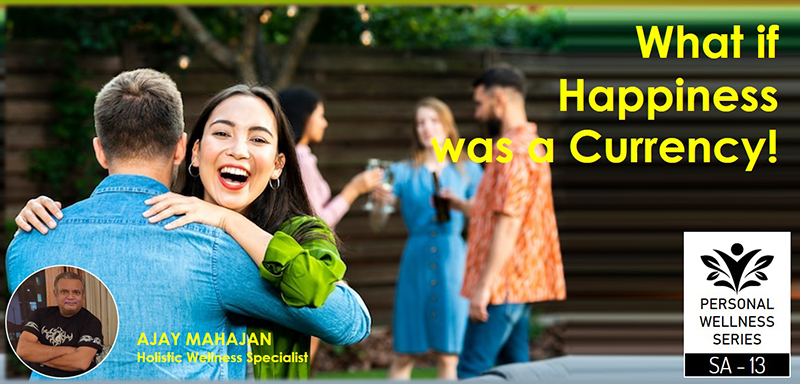
In a world where material wealth often reigns supreme, what if there was a currency that transcended monetary value?
Imagine a currency that couldn’t be bought or sold but could be exchanged freely, enriching the lives of both the giver and the receiver.
Welcome to the concept of happiness as currency—a revolutionary idea that has the potential to transform our understanding of wealth and wellbeing.
The Power of Exchange:
Happiness, unlike traditional currencies, isn’t finite or scarce. It’s abundant and infinitely renewable, making it an ideal medium of exchange. When we trade happiness for happiness, we create a ripple effect of positivity that radiates outward, touching the lives of everyone it encounters.
This simple act of sharing joy has the power to uplift spirits, strengthen relationships, and foster a sense of interconnectedness in our global community.
Personal Choice, Global Impact:
The beauty of happiness as a currency lies in its accessibility and universality. Unlike traditional currencies, which are often tied to economic status or social privilege, happiness is something everyone can access and share freely.
By making a conscious choice to prioritize happiness in our daily lives, we not only enhance our own wellbeing but also contribute to the collective happiness of humanity.
Practical Applications:
So how can we harness the currency of happiness to improve both personal and global wellbeing?
The possibilities are endless.
We can start by cultivating gratitude and appreciation for the abundance of joy in our lives, whether it’s a beautiful sunset, a heartfelt conversation, or a simple act of kindness.
We can create a more compassionate and empathetic world by spreading positivity through random acts of kindness, genuine compliments, and supportive gestures.
Furthermore, we can use happiness as a currency to bridge divides and promote understanding across cultural, social, and ideological boundaries.
By seeking common ground and embracing diversity, we can build a more inclusive and harmonious society where everyone feels valued and respected.
Challenges and Opportunities:
Of course, the concept of happiness as a currency has its challenges.
Cultural differences, societal norms, and individual perspectives may shape how happiness is perceived and exchanged. Additionally, the pursuit of happiness should never come at the expense of others’ wellbeing or be used to exploit vulnerable populations.
However, despite these challenges, the potential benefits of embracing happiness as currency far outweigh the risks.
By fostering a culture of kindness, compassion, and positivity, we can create a world where happiness is not just a personal pursuit but a global currency that enriches the lives of all who participate.
Conclusion:
The concept of happiness as currency offers a compelling vision for a more equitable, compassionate, and joyful world.
By embracing happiness as both a personal choice and a global currency, we have the power to create positive change in our own lives and the lives of others. So let’s start trading happiness for happiness and watch as the world becomes a brighter, more beautiful place for us all.
As we explore the transformative potential of happiness as currency, I invite you, the readers, to share your thoughts and insights on this concept.
How do you envision happiness as a currency shaping personal and global wellbeing?
Have you experienced moments where the exchange of happiness has made a meaningful impact on your life or the lives of others?
Your perspectives and experiences are valuable contributions to this ongoing conversation.
Together, let’s continue to explore the possibilities of happiness as currency and its role in creating a brighter, more harmonious world for all.
Ajay Mahajan | +91 96548 89815 | ajm@ajaymahajan.info
